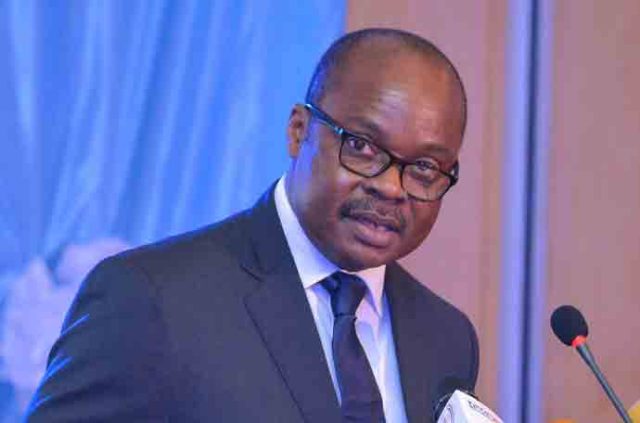The Governor of the Bank of Ghana (BoG) Dr. Ernest Addison has expressed confidence in Ghana securing a deal with the International Monetary Fund (IMF) by first quarter of 2023.
According Dr. Addison, this will however depend on finalizing the Domestic Debt Exchange Programme(DDEP) with all bond holders as well as creditors.
He is optimistic the Balance of Payment from the IMF should come in on time, to support the country’s International Reserves.
“We are confident that by the end of the first quarter, we should be able to get a disbursement from the IMF to help augment the foreign-exchange resources of the central bank”, Dr. Addison said at press briefing after Monetary Policy Committee meeting.
This was after it emerged that that Ghana’s international reserves has dropped to about one month of import cover.
Pre-Conditions for IMF Board approval
Ghana is expected to reach an agreement with its creditors, both domestic and eternal bond holders over plans to restructure the country’s debt to sustainable levels.
The government is also expected to publish the Auditor General’s report on the Audit of COVID-19 spending undertaken from March 2020 to June 2022.
This is expected to ensure transparency and accountability of the COVID-19 emergency spending.
The country is also expected to implement an upfront weighted electricity tariff of 30 percent, excluding lifeline.
The GETFund, Road Fund, and District Assemblies Common Fund will start reporting on Provisional Budget in Hyperion at disaggregation level to use all the functionalities of GIF and MIS for spending execution , including allotment, issuance of payment warrant and actual payments.
Another Pre-Condition needed, is enacting legislations or Executive order to achieve the 2023 fiscal target of an adjustment of the Non-Oil Primary Balance of at least 2 percent of GDP.
Government must also achieve revenue measures which will permanently improve Non-Oil Revenue to GDP ratio by at least 1.2 of GDP.
It is believed that these measures will ensure a front loaded and credible fiscal adjustment in order to restore fiscal and debt sustainability.
Supporting Commercial Banks
Dr. Addison announced that the Bank of Ghana has already rolled out measures that is expected to assist the commercial banks to deal with the potential risk that the Domestic Debt Exchange Programme poses to the banking sector.
This includes: Reduce the Cash Reserve Ratio on Domestic Currency Deposits from 14 to 12 percent. It has also reduce the Cash Reserves Ratio on Foreign Currency Deposits from 13 to 12 percent.
He indicated that, the High Regulatory Reliefs will help deal with the Capital and Liquidity issues that have come about as a result of the debt exchange programme.
He also announced that the Bank of Ghana has put in place a separate liquidity arrangement for the Commercial Banks, to support their operations.
Dr. Addison disclosed that the Financial Stabilization Fund will be capitalized at 1 billion dollars. The World Bank has already promised some 250 million dollars to support the fund.
Debt Exchange Programme and the Economy
The Governor indicated that the programme if it is well implemented may go a long way to impact positively on the country’s international reserves, the cedi’s stability and interest payments by government.
Inflation Rate Development
Responding to a question on when inflation could get back to the single digit range, Dr. Addison noted that, the central bank is projecting to the bracket within the next four years.
DISCLAIMER: The Views, Comments, Opinions, Contributions and Statements made by Readers and Contributors on this platform do not necessarily represent the views or policy of Multimedia Group Limited.


















